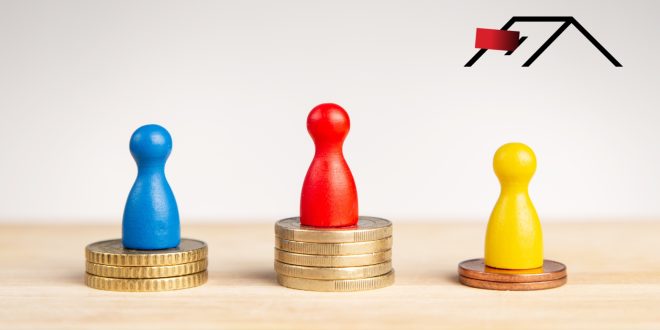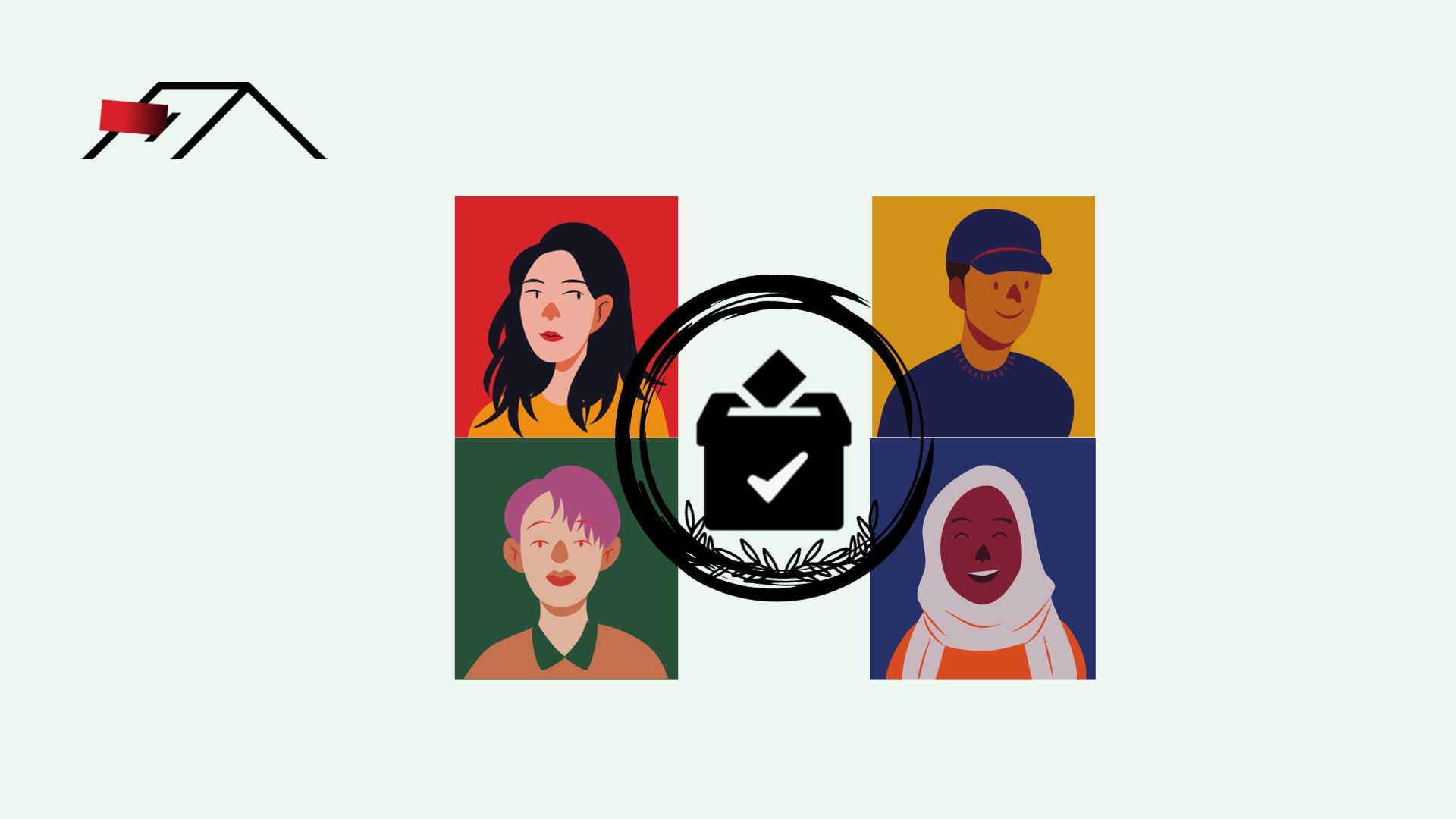Long before the voting day, the 2024 elections seem to have already known their winner. This reminds us of Dr. G T Ng, a speaker at the international seminar “Presentation at the General Conference Annual Council 2019” on October 15, 2019. He mentioned that Indonesia is one of the most effective countries in determining the elected ones during the democratic process. In Somalia, it takes between 20-30 days until the results are known. In America, it is known just a few hours after the election. In Indonesia, they already know the results before the election.
This perspective is also related to the context of the 2024 Elections. Starting from the vigorous efforts of survey institutions in publishing survey results to the public in the political contestation atmosphere in every election, based on applicable regulations. In practice, it is permissible for survey institutions to conduct surveys and publish them. As quoted from the bawaslu.go.id website, candidates, political parties, election organizers, and survey institutions can provide information related to the election process.
For example, Charta Politika Indonesia conducted a survey from October 26 to 31, 2023, involving 2,400 respondents. The survey results showed that the Ganjar Pranowo-Mahfud MD pair was leading over other pairs, namely Prabowo Subianto-Gibran Rakabuming and Anies Baswedan-Muhaimin Iskandar. Meanwhile, a survey conducted by the Indikator Survey Institute from October 16 to 20, 2023, involving 2,567 people, indicated that the Prabowo-Gibran Rakabuming pair was leading over the Ganjar Pranowo-Mahfud MD and Anies Baswedan-Muhaimin Iskandar pairs.
Dignity of Survey Institutions
Based on the Decision of the General Election Commission regarding the Technical Guidelines for the Registration of Survey Institutions or Opinion Polls and the Quick Count of the 2024 General Election Results, survey institutions or opinion polls present data regarding election information or public opinions about the electoral process, Election Participants, Voter Behavior, or other matters related to the election using methodologies aimed at providing an overview for voters. This information can be considered by voters in making their choices during the 2024 General Election.
Although surveys or opinion polls are widespread, not all results can be trusted because there are survey institutions whose credibility and methodologies are questioned. In addition, internal and external surveys are often conducted based on requests from candidates or political parties participating in the election. Some may have similar results, but others may release different results.
Senior researcher at the Surabaya Survey Center (SSC), Surokim Abdussalam, emphasizes that survey institutions must operate in a neutral space. Survey institutions should work with ethics, be accountable, and prioritize ethics. According to him, there is a significant difference between survey institutions and public consultants. Survey institutions should truly operate in a neutral chamber, acting impartially as generators of voting behavior data rather than tools for personal interests. Surveys, which are a necessity, should not become a problem in the midst of community life. The results of the General Election Commission (KPU) count, which serve as the legitimacy tool for the quick count results circulated by survey institutions, should not become an issue.
Reflecting on the 2019 Elections
If we look at the 2019 Elections, there were 40 survey institutions involved in the electoral process. Dozens of these institutions also conducted quick counts during the 2019 elections, including Lembaga Survei Kelompok Diskusi dan Kajian Opini Publik Indonesia [the Survey Institute Group Discussion and Public Opinion Study of Indonesia] (KedaiKOPI), Poltracking Indonesia, Indonesian Research And Survey (IRES), Pusat Penelitian dan Pengembangan, Pendidikan dan Pelatihan Radio Republik Indonesia [Center for Research and Development, Education and Training Radio Republic Indonesia], Charta Politika Indonesia, Indo Barometer, Research and Development of Kompas, Saiful Mujani Research Center (SMRC), and Indikator Politik Indonesia [Indonesian Political Indicator].
Additionally, there are Indekstat Konsultan Indonesia [Indekstat Indonesian Consultants], Jaringan Suara Indonesia [Indonesian Voice Network], Populi Center, Lingkaran Survei Kebijakan Publik [Public Policy Survey Circle], Citra Publik Indonesia [Indonesian Public Image], Survei Strategi Indonesia [Indonesian Strategy Survey], Jaringan Isu Publik [Public Issue Network], Lingkaran Survei Indonesia [Indonesian Survey Circle], Citra Komunikasi LSI [LSI Communication Image], Konsultan Citra Indonesia [Indonesian Image Consultant], Citra Publik [Public Image], Cyrus Network, Rakata Institute, Lembaga Survei Kuadran [Quadrant Survey Institute], Media Survei Nasional [National Survey Media], Indodata, Celebes Research Center, Roda Tiga Konsultan [Roda Tiga Consultants), and Indomatrik, Puskaptis, Pusat Riset Indonesia [Indonesia Research Center], PT. Data LSI (Lembaga Survei Indonesia [Indonesian Survey Institute]), Centre for Strategic and International Studies (CSIS).
There are also Voxpol Center Research & Consultant, FIXPOLL Media Polling Indonesia, Cirus Surveyors Group, Arus Survei Indonesia, Konsepindo Research and Consulting, PolMark Indonesia, PT. Parameter Konsultindo, and Lembaga Real Count Nusantara.
However, in that year, the Election Supervisory Body stated that dozens of survey institutions did not report their methodologies and funding sources to the General Election Commission (KPU) by the specified deadline, which was on May 2, 2019. This was a violation of the KPU Regulation derived from Law Number 7 of 2017 on Elections.
The regulation stated: “Survey institutions must report to the KPU no later than 15 days after the polling day, or by May 2, 2019.” They also violated Article 29 Paragraph (4) of the Election Supervisory Body Regulation. The article states: “The announcement of survey results must inform the funding sources and methodologies used to the election organizers.”
How is the 2024 Election?
The Election Supervisory Board (Bawaslu) has instructed the General Election Commission (KPU) to promptly improve the procedures for the registration of survey institutions and the quick count process in the 2019 Elections. This directive has been accommodated by the KPU, ensuring strict regulation of survey institutions conducting quick counts in the 2024 elections. The KPU has formulated rules, particularly technical aspects, within the Decision of the KPU on the Technical Guidelines for the Registration of Survey Institutions or Opinion Polls and the Quick Count of the 2024 General Election Results.
In this regulation, the surveys or opinion polls that can be conducted include: 1) Voter behavior; 2) Election results; 3) Election institutions, such as Election Organizers, parliament/legislative bodies, and/or the government; 4) Election participants, such as political parties for the elections of members of the House of Representatives, members of the Regional Representative Council, members of the Regional People’s Representative Councils for Provinces, and members of the Regional People’s Representative Councils for Regencies/Cities, individuals for elections, members of the Regional Representative Council, and candidate pairs proposed by political parties or coalitions of political parties for the Presidential and Vice-Presidential elections; and/or 5) Other surveys or opinion polls related to elections.
Next, regarding the strengthened rules on quick counts. One of them is the quick count or swift calculation of the results of the 2024 elections. It is allowed to be conducted two hours after the voting process. This provision is stipulated in Law Number 7 of 2017 regarding Elections, specifically in Article 449 paragraph 5. The announcement of the estimated results of the quick count can only be made at the earliest two hours after the voting process is completed, in the western part of Indonesia. Violations of this provision are subject to criminal sanctions, including imprisonment for 1 year and 6 months, as well as fines. []
ARA ANNISA ALMI
Law Faculty student at Andalas University
Translated by Catherine Natalia
 Rumah Pemilu Indonesia Election Portal
Rumah Pemilu Indonesia Election Portal




